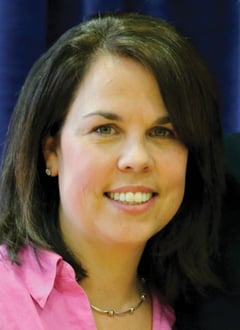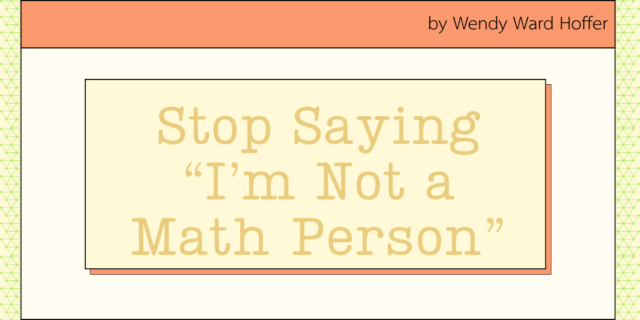
The eight Mathematical Standards of Practice in national and state standards documents create opportunities for all math learners. It turns out that students with learning disabilities can benefit tremendously from the mathematical practices.
The eight Mathematical Standards of Practice in national and state standards documents create opportunities for all math learners. It turns out that students with learning disabilities can benefit tremendously from the mathematical practices.
In Routines for Reasoning, Grace Kelemanik, Amy Lucenta, and Susan Janssen Creighton explore the power of mathematical routines. They reveal that using routines gives students with learning disabilities precisely the support they need in four key ways. Here’s how it works.
The Needs of Students With Learning Disabilities
Students with learning disabilities have a particular set of learning needs in mathematics. The literature suggests that these students need mathematics learning experiences that:
- provide authentic, meaningful contexts
- model learning strategies using multisensory techniques
- provide students with opportunities to use language to describe their understanding
- provide multiple practice opportunities.
Students with learning disabilities benefit most from explicit instruction, opportunities to verbalize their mathematical reasoning, visual representations, and a range and sequence of mathematics examples.
How to Meet the Needs of Students With Learning Disabilities
The set of recommendations above points toward four important instructional ideas:
- use of authentic contexts
- use of multimodal techniques, including multiple representations
- rich opportunities for language use embedded in mathematical learning experiences
- instruction that scaffolds students’ development of increasingly abstract thinking.
Weaving in the Standards for Mathematical Practice
These four areas of need and the related instructional ideas reveal a great deal of overlap with the approaches to doing mathematics that are championed in the standards for mathematical practice!
- Use of authentic contexts (MP1 and MP2)
- Use of multimodal techniques (MP1, MP2, MP3, MP6, MP7, and MP8)
- Opportunities for language use (MP1, MP3, and MP6)
- Scaffolds for increasingly abstract thinking (all the mathematical practices)
There is good news here for both teacher and students. These math practices that may have seemed daunting actually provide a much-needed opportunity for all students to excel. To turn that opportunity into a practical reality, instructional routines can develop and support students’ use of the mathematical practices.
Any routine designed with students with learning disabilities' areas of need in mind will emphasize the interconnectedness of mathematics and provide a structure that helps students learn how to intentionally reason. These kinds of routines are not problem-specific, they are thinking-specific. They provide guidance for students, helping keep the focus on flexible thinking. These instructional routines and strategies have been successfully implemented repeatedly in the authors’ work in a range of mathematics classrooms over the past decade. They are universally designed to provide access to a wide range of math learners.

 Grace Kelemanik has more than 30 years of mathematics education experience. A frequent presenter at national conferences, her work focuses on urban education, special populations, and teacher training. She is a former urban high school mathematics teacher and Project Director at Education Development Center. Grace has also worked extensively with new and preservice teachers through the Boston Teacher Residency program.
Grace Kelemanik has more than 30 years of mathematics education experience. A frequent presenter at national conferences, her work focuses on urban education, special populations, and teacher training. She is a former urban high school mathematics teacher and Project Director at Education Development Center. Grace has also worked extensively with new and preservice teachers through the Boston Teacher Residency program.
in addition to co-authoring Routines for Reasoning: Fostering the Mathematical Practices in All Students, she is also coauthor of The Fostering Geometric Thinking Toolkit. She is a mathematics education consultant and professional development provider.
Follow Grace on Twitter @GraceKelemanik
 Amy Lucenta has extensive K–12 mathematics experience with all students, including a focus on special populations. She is a frequent professional development provider who helps teachers implement the Standards for Mathematical Practice.
Amy Lucenta has extensive K–12 mathematics experience with all students, including a focus on special populations. She is a frequent professional development provider who helps teachers implement the Standards for Mathematical Practice.
Follow Amy on Twitter @AmyLucenta
 Susan Janssen Creighton is a senior mathematics associate at Education Development Center (EDC) in Massachusetts. She has a particular focus on developing mathematics curriculum and teacher professional development.
Susan Janssen Creighton is a senior mathematics associate at Education Development Center (EDC) in Massachusetts. She has a particular focus on developing mathematics curriculum and teacher professional development.


